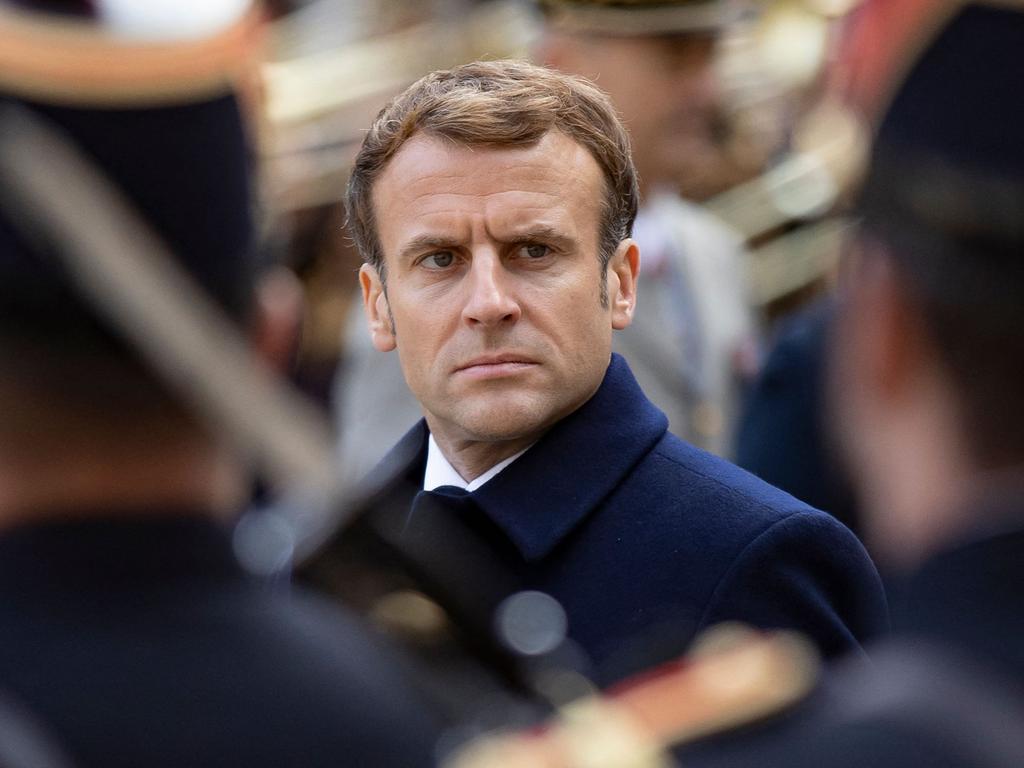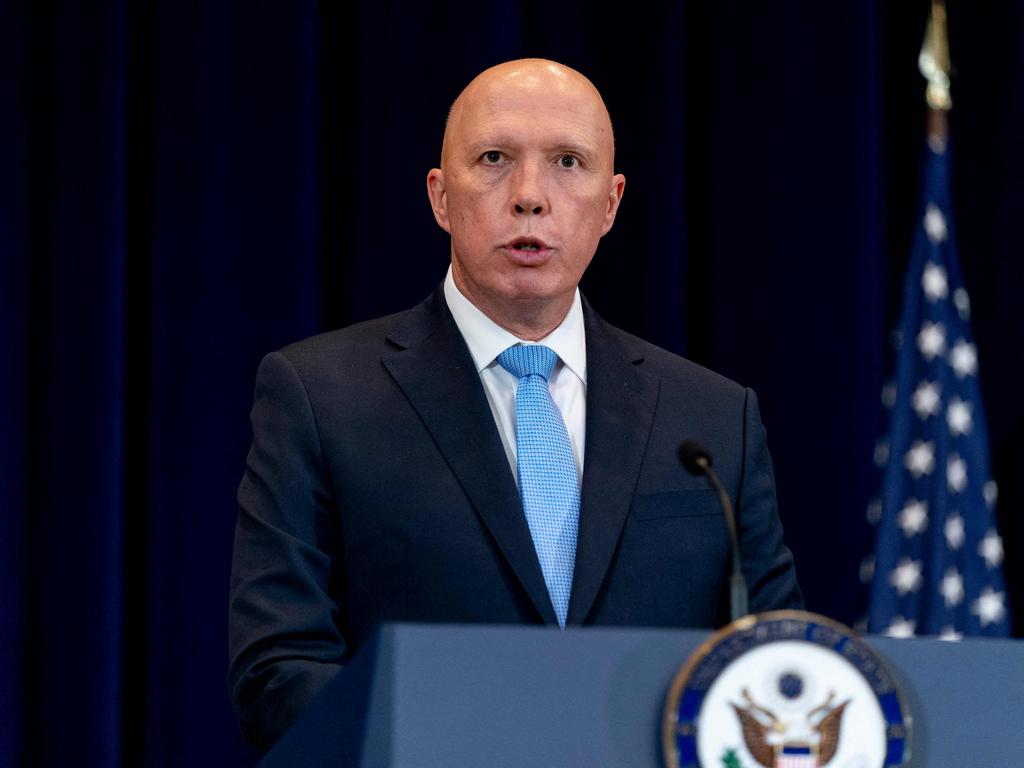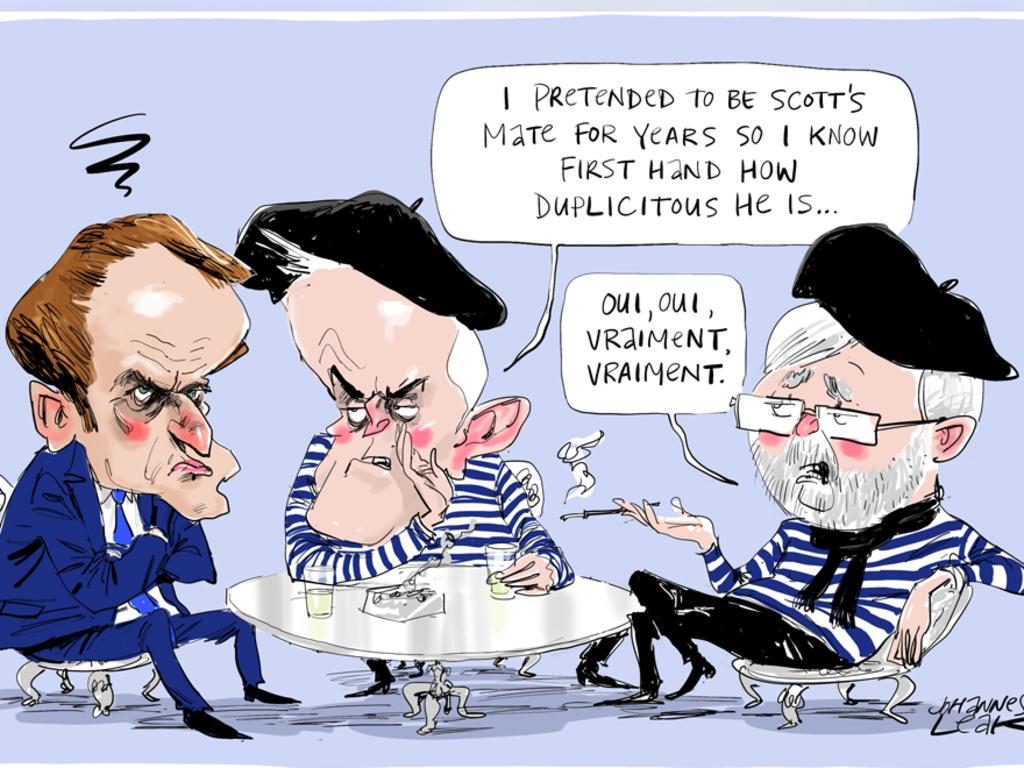MotorMalth: what happened to Turnbull’s vow of silence?


When he announced in October 2018 that he had chosen Turnbull to represent Australia at the Our Ocean conference in Indonesia, Morrison rejected criticism about his choice, saying he envisaged Turnbull could be sent as a government representative to additional conferences overseas “where there’s an opportunity and it’s in Australia’s national interest”.
Around the same time, Morrison floated the idea of relocating Australia’s embassy in Israel from Tel Aviv to Jerusalem. Turnbull did not miss the opportunity to humiliate Morrison. “There’s no question that were that move to occur, it would be met with a very negative reaction in Indonesia,” he gleefully told the media at the conference, adding Indonesian President Joko Widodo had expressed concerns.

“We have to take into account Australia’s national interest, and our interests in the region, when we consider decisions like this,” he said. Suffice to say in the three years that have since elapsed, Morrison has not deemed it in the national interest for Turnbull to represent his government.
Perpetually miserable Glasgow ghost
Last week a perpetually miserable Glasgow ghost took the side of French president Emmanuel Macron, who claimed Morrison had lied to him about the scotched deal to supply French submarines to Australia. “He’s lied to me on many occasions,” Turnbull told journalists. “Scott has always had a reputation for telling lies.”
It prompted me to recall an undertaking Turnbull gave about two months after his resignation from parliament, when he appeared on ABC’s Q + A. “I’m not going to be, you know, running a commentary on my successor. I’m not going to be, obviously, not in the parliament seeking to undermine him or overthrow him, like Kevin [Rudd] and Tony Abbott have done, he said. “I wish Scott all the best in the election, I really do … As you observed at the outset, I’ve had little or nothing to say since I gave my, you know, farewell remarks in the Prime Minister’s courtyard … And I’ve done that deliberately because I wanted to give Scott all the clear air to do his own thing.”
December, 2018
But in December 2018, just under a month after his ABC appearance, Turnbull publicly called for Morrison to hold the election before NSW voters went to the polls on March 23. “There is a real concern in NSW Liberal circles that a very good, outstanding government led by Gladys Berejiklian is going to have its prospects of success diminished because of the brand damage to the Liberal Party caused by the leadership change in August,” he said.


As subsequent events proved, most of those outraged by the turfing of Turnbull were people who never voted Liberal in the first place. In April 2019, following revelations then Home Affairs Minister Peter Dutton had met Chinese billionaire Huang Xiangmo at a lunch, Turnbull again forgot his vow of silence. “Scott Morrison is the Prime Minister, and you can’t wave this off and say that it is all part of gossip and of the bubble — this is the national security of Australia,” he said.
Many breaches of vow of silence
Aside from those examples, Turnbull has never publicly criticised his replacement. Well apart from the time in November 2019 when he rebuked Morrison for contacting police about an investigation into an allegedly forged document used by Energy Minister Angus Taylor’s office to discredit Sydney’s Lord Mayor Clover Moore. “I’m sure the call that the Prime Minister made to the NSW Police Commissioner was innocuous, but it would have been much better had it not been made,” he said.
And there was that time Turnbull made himself available for the BBC in January 2020 to lambast Morrison for holidaying in Hawaii on the eve of what was a disastrous bushfire season. “I can’t explain any of that,” he said. “It’s just not consistent with the way in which a Prime Minister would or should act.” But to be clear, this was not a running commentary on his successor. Much as Turnbull wants to live the quiet life, a sense of public duty compels him to speak, you see. “Morrison is cleaving very closely to the Murdoch press, and they are backing him up,” he said in November 2020. “They’re not holding him to account for failings.”

And Turnbull even used the attack on the US Capitol building in January to criticise the Prime Minister. Asked by the ABC whether Morrison’s condemnation of rioters was strong enough, he replied “It looks a bit weak, a bit tepid”.
In February, when ABC journalist Louise Milligan reported that an unnamed Cabinet minister had been accused by a now deceased woman of raping her in 1988, Turnbull demanded Morrison act. “Frankly, it’s not good enough for the Prime Minister to say it’s a matter for the police,” he said. Then Attorney-General Christian Porter later revealed himself as the subject of the allegation, an accusation he strenuously denied, and which ABC later conceded could not meet the criminal or even civil standard of proof. “The Prime Minister cannot outsource his responsibility for composing his ministry to the police,” said Turnbull at the time, in what was truly a bizarre take.
Addressing an energy conference in May, he voiced anger at the perceived absence of clean energy commitments in the federal budget. When asked what it would take to motivate the government to act, he replied: “At this stage, I’d say only the prospect of electoral defeat, whether that’s at the hands of the Labor Party, which would seem implausible, or independents who are supportive of climate action”.
Premediated panache
These are not impromptu remarks. They are premeditated and delivered with characteristic panache for maximum amplification. “When you conduct yourself in such a deceitful manner internationally, it has a real impact on Australia,” Turnbull told journalists at the National Press Club in September regarding Australia’s cancellation of the French submarine contract.
Commenting in July on the federal government’s vaccination rollout, Turnbull told the ABC: “I can’t think of a bigger black-and-white failure of public administration than this”. This was premature and alarmist. As the Organisation for Economic Cooperation and Development noted in its biennial Health at a Glance report this month: “Australia had the lowest vaccination rate across 37 OECD countries on July 1, but had risen to 21st highest as of November 1”.
I could list all of Turnbull’s criticisms of Morrison, but this column has a word limit. “Prime Minister Scott Morrison is long on tactics and very short on strategy,” Turnbull told ABC last month regarding climate change. And again last month on ABC: “[Morrison] has absolutely damaged Australia’s reputation for being trustworthy, he’s alienated France … he’s undermined the Australian shipbuilding industry.” The national broadcaster is Turnbull’s second home now. Interviewed on 7.30 last week he told presenter Leigh Sales: “Australia has never been more out of step on a global issue with its friends and allies than it is on climate”.
In short, Turnbull has been true to his undertaking not to provide a running commentary on Morrison’s performance, except in the areas of foreign policy, relationships with foreign leaders, defence, climate change, disaster management, renewable energy, electoral strategy, national security, the media landscape, vaccination rollout, ministerial composition, personal integrity, and budget allocations for renewables. Did I miss anything?






About two months after becoming Prime Minister, Scott Morrison learned a hard lesson regarding Malcolm Turnbull. He assumed that giving him an official role on the world stage would temper his bitterness at having lost the leadership.